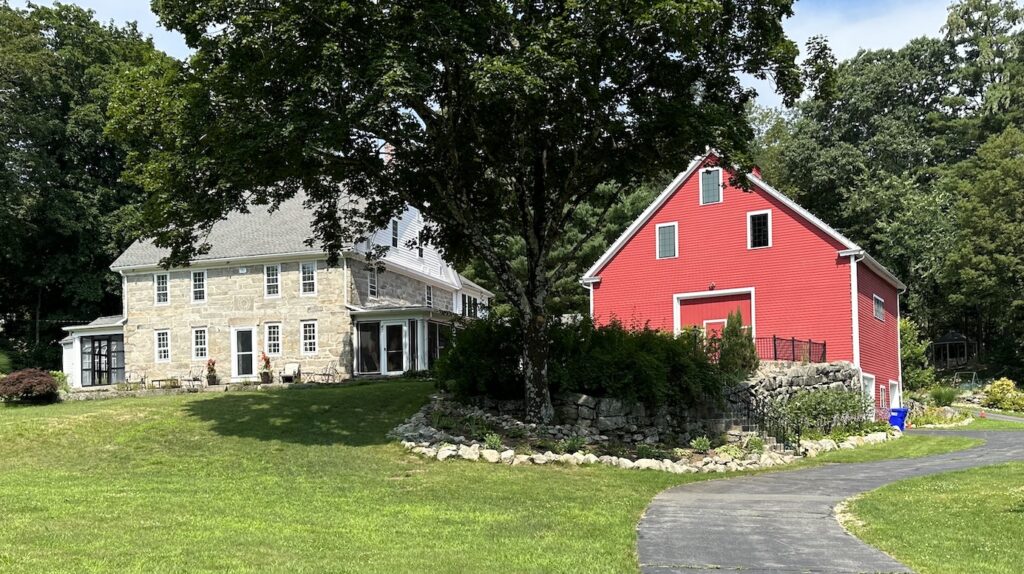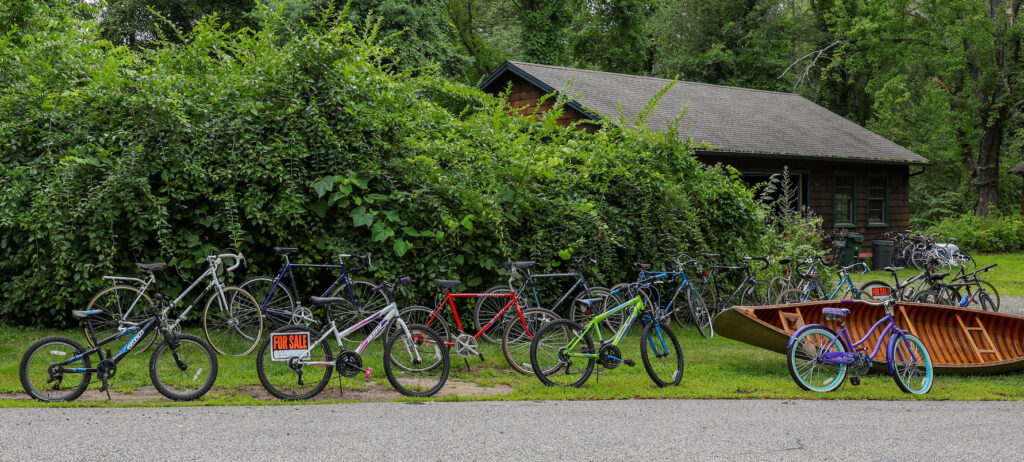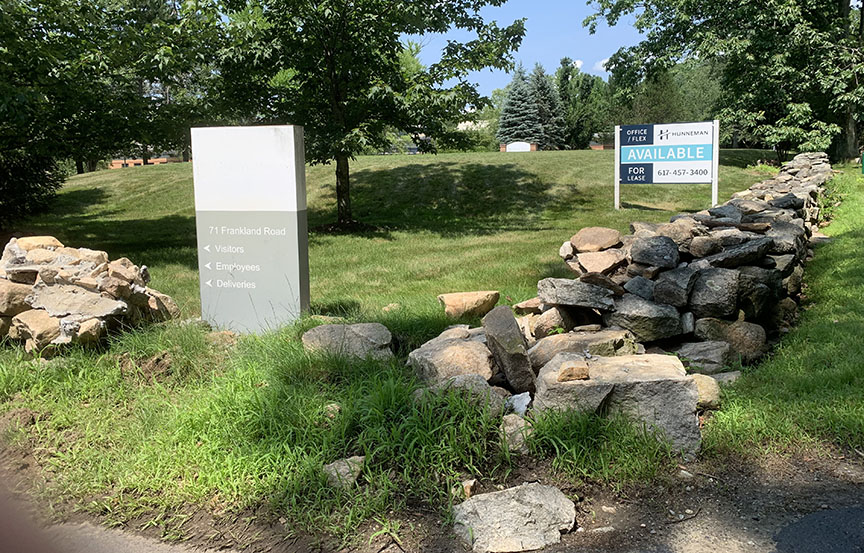
The owners of this home and barn at 47 East Main Street are seeking permission to rent the property for private events. PHOTO/JERRY SPAR
The Board of Appeals last month again denied the use of a detached barn at 47 East Main Street for functions such as wedding receptions. There also is a single-family home on the property.
The applicants, Howard Roberts and Anna Dorcey, last year proposed this use for the barn but were denied. In March, they proposed adding an agricultural component on abutting land they purchased in addition to the previously proposed barn use, noting that receptions would be for fewer than 100 guests.
This action was denied in a letter from Assistant Building Inspector Michael Shepard on March 28, prompting an April appeal letter from the applicants. The appeal was denied at a July 12 Board of Appeals hearing.
“When the owners initially applied last year to use the barn for functions, they were denied because it was in a residential district and this use is not allowed,” Shepard explained via email. “Since that initial hearing they acquired some additional land next door and added it to the 47 East Main lot.”
Now that the property consists of more than 6.91 acres, agricultural use is allowed there because the property is larger than 5 acres. But at the time of a March letter, “none of the planned agricultural uses were undertaken,” according to the Board of Appeals decision document.
The denial stated that the appellants had to prove the barn’s use as a reception hall “is minor in significance” to the main property use.
“Unless or until plausible evidence is provided that the primary use of the land is for commercial agriculture, the use of the barn for micro functions shall remain prohibited,” the decision read.
According to the decision findings, Roberts and Dorcey said the work to prepare the property for agricultural uses was performed after the March letter was issued. But the board’s role was limited to reviewing and ruling only on the March 28 decision.
“Essentially, this is why the opinion was upheld,” Shepard said. “I anticipate at some time, probably in the not too distant future, the agricultural use will have started and the accessory use will be allowed if it complies with the building code and site plan approval from the Planning Board.”
Added Shepard: “Agricultural uses in Massachusetts receive a lot of latitude from the state because such uses are dwindling rapidly, and the state is trying to encourage this use.”
Winter Street resident OK’d to continue selling bikes
A Winter Street resident will be allowed to peddle refurbished bicycles on his property, provided that they are placed at least 6 feet away from the street, after receiving unanimous approval from the Board of Appeals.
Todd Alving, who lives at 166 Winter Street at the intersection of Winter and Pond streets, has been selling refurbished bicycles on his front lawn for the past two decades. The property is zoned as being in an agricultural district.

A Winter Street resident has been granted permission to continue selling bicycles on his property. PHOTO/JOHN CARDILLO
An issue arose in April when the town ordered a cease and desist order to Alving to prohibit him from selling the bicycles. In response, Alving filed a special permit request with the Board of Appeals to allow for the bicycle sales as a “home occupation,” according to the board’s decision statement. A hearing was scheduled on June 28 before the board.
Shortly before the hearing, area residents received a flyer in a black plastic bag tied to each mailbox with a picture of several bikes displayed in the front yard. The flyer, which was written anonymously, urged people to attend the hearing, referring to the bicycle display as “a bicycle junk yard” and “an illegal eyesore.” It also noted that bicycles sometimes fell into the street, causing a safety issue on the narrow, winding roadway.
According to the decision document, which was provided to the Independent by Shepard via email, the bicycle business was deemed allowable by right as a “home business workshop.”
While the use was by right, the ability to display the bikes on the front lawn required a special permit. The refurbishment of the bicycles takes place in a detached barn on the property, and there is no business signage or advertising on the property, according to the decision.
“The applicant stated that he needs to display the bicycles to sell them,” the document stated, “and no more than one person at a time has ever stopped by to look at a bicycle.”
Written and verbal testimony was received on both sides of the issue. The majority of residents noted that there are other home businesses in the neighborhood, while an opponent, Joe Centola, stated that there are “too many bicycles too close to the road,” according to the decision.
The board allowed the special permit in a 5-0 ruling with the following conditions:
- That the work must be contained in the detached barn on the property
- That there is no major structural change to the exterior of the home, other than permitted signage
- The applicant must display no more than 15 bicycles at a time, that they shall be no closer than 6 feet from the roadway, and that the bikes only be displayed between April 1 and Dec. 31.
The decision infuriated Centola. He spoke about his displeasure with the bicycles being displayed in the yard at the past two Select Board meetings during the public comment period, saying they also occupy town property when they fall into the street.
“The bikes are still there,” he said at the Aug. 1 Select Board meeting. “I hate to say it, but it’s a busy intersection that twists and winds. Somebody’s going to get hurt. The town will be liable.”
He requested that the town survey the lot to delineate where Alving’s property ends and the town’s begins. He also said Alving should have presented a site plan showing how the bikes will be staged.
Alving did not respond to requests for comment.















0 Comments